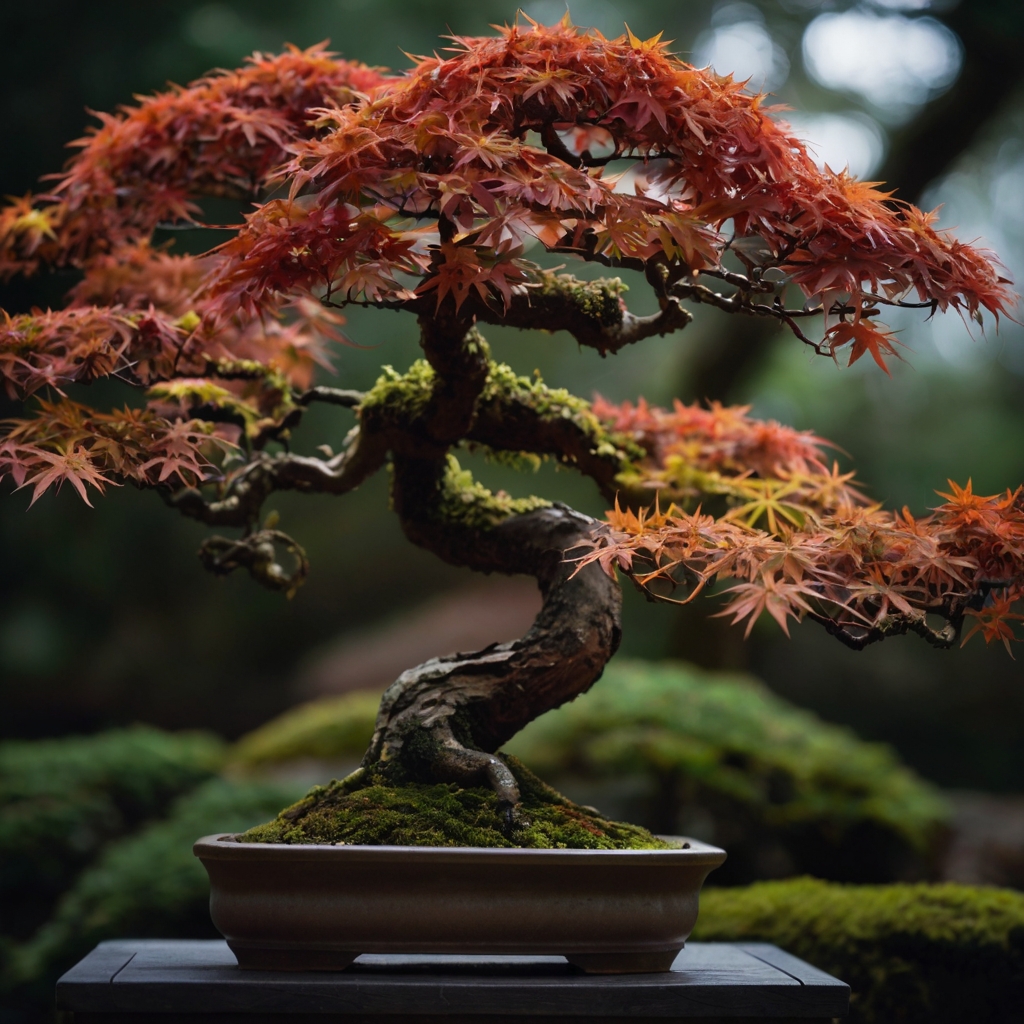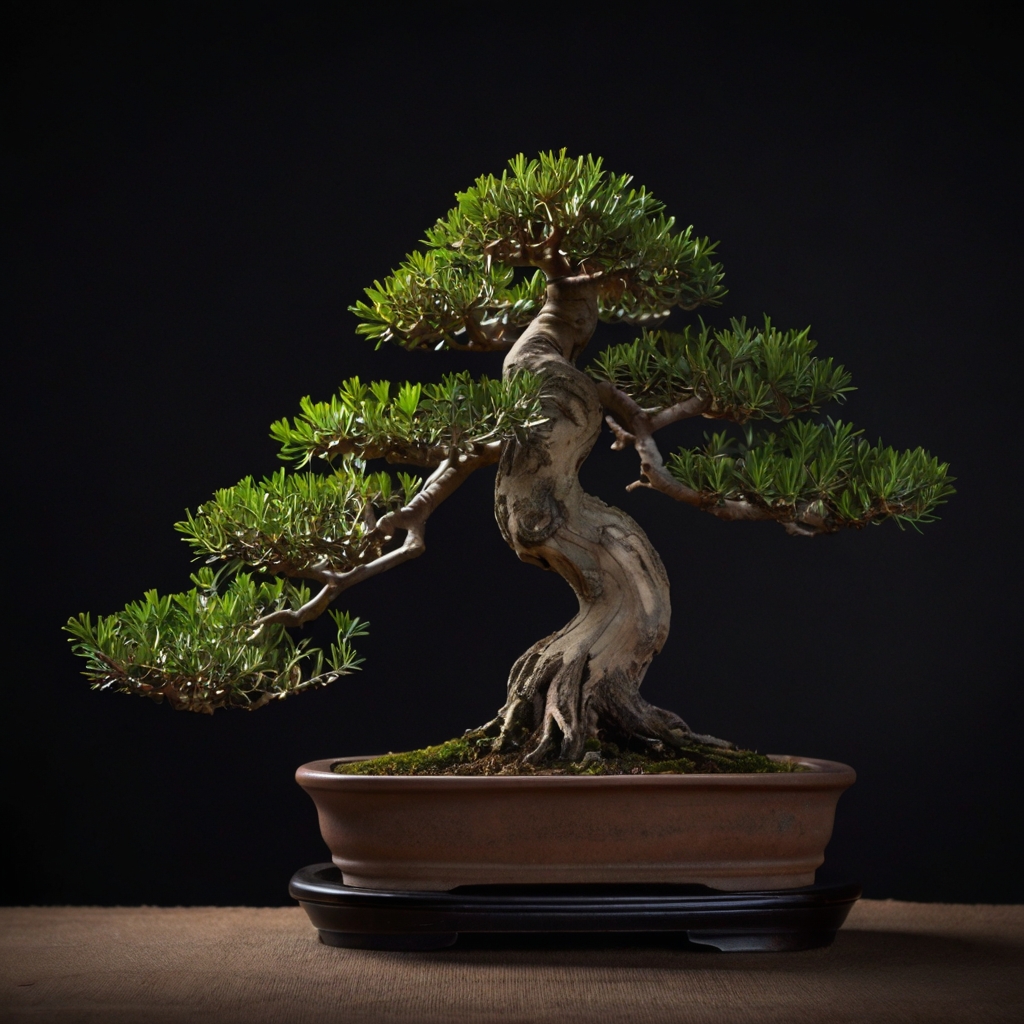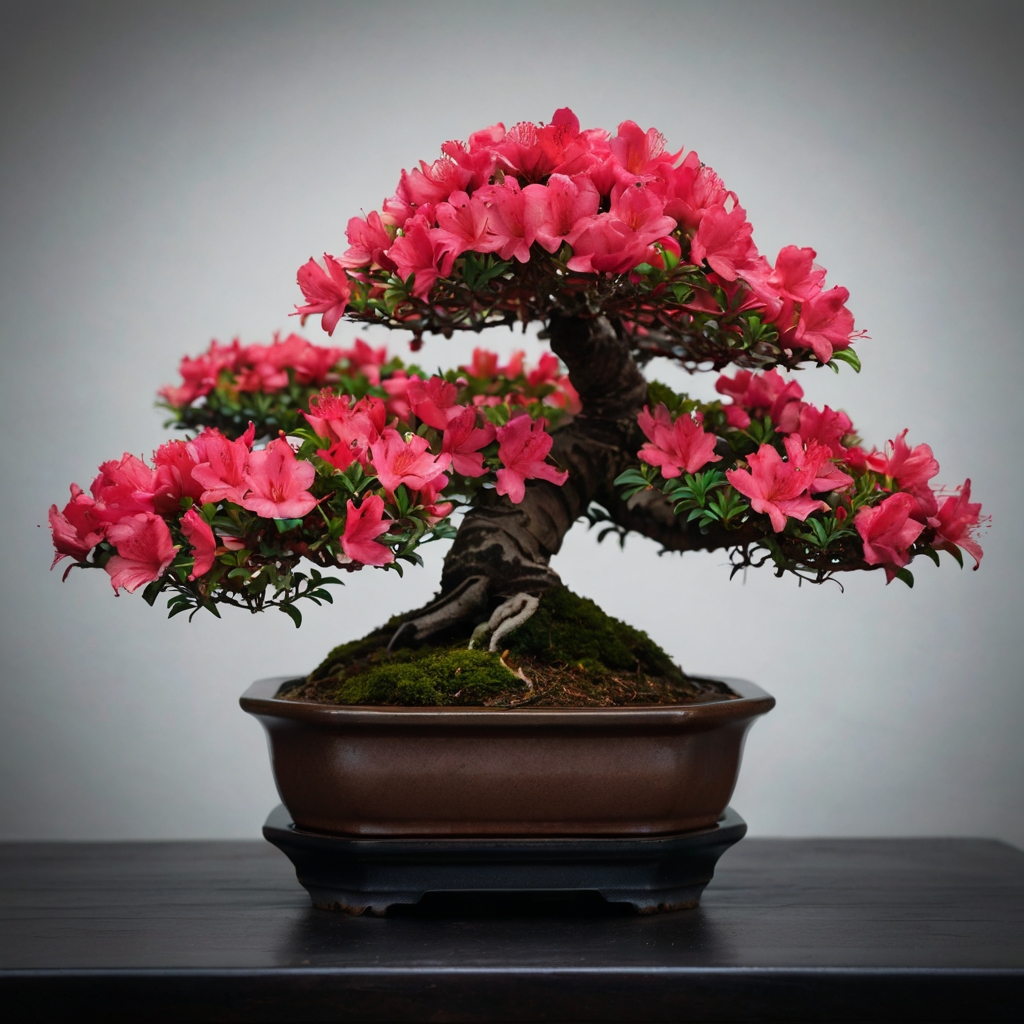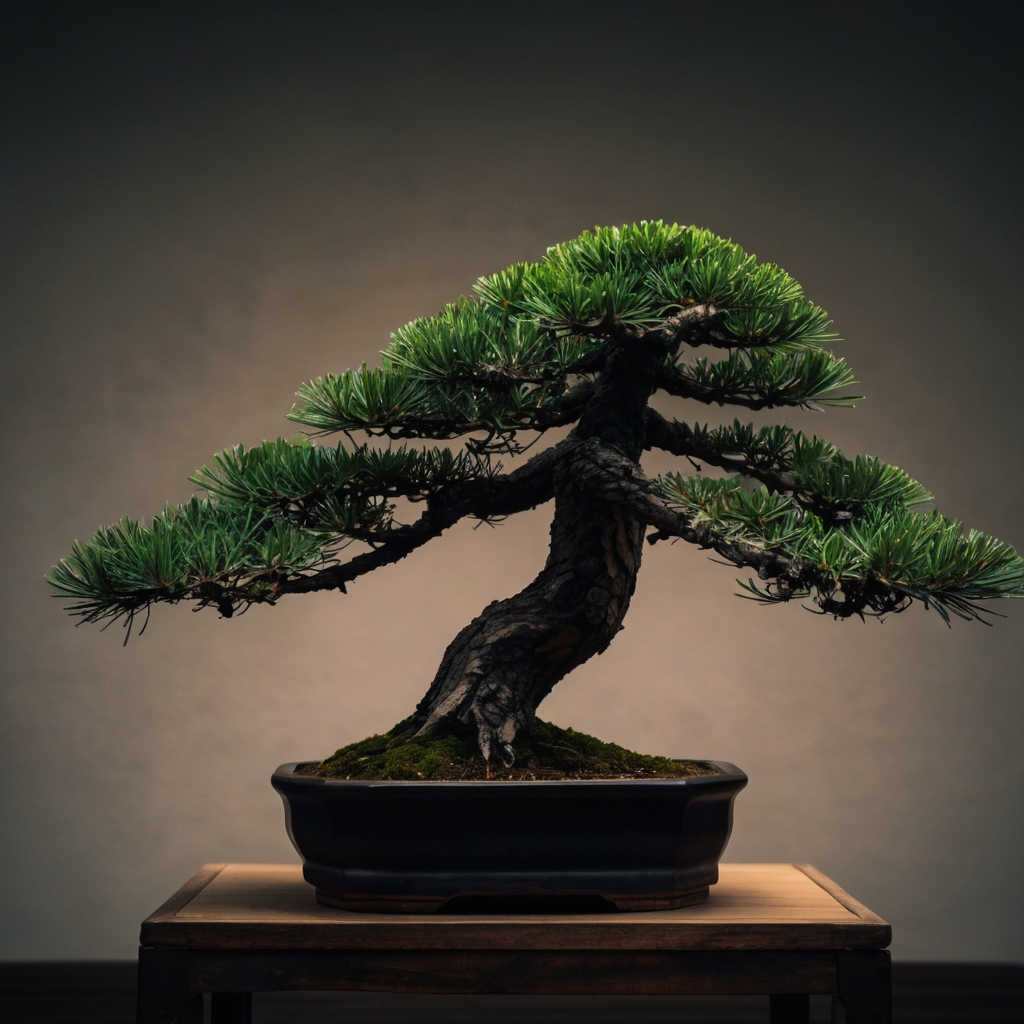Contact Teien Geijutsu
Email: teiengeijutsu@gmail.com
Phone: +81-90-1009-5799
Address: 3-8-12 Kanda, Chiyoda-ku, Tokyo 101-0045, Japan
Explore expert bonsai and gardening tips, discover beautiful plants, and shop quality bonsai in Japan with Teien Geijutsu. We provide guidance for beginners and enthusiasts alike to nurture and grow your miniature masterpieces.
Teien Geijutsu is a dedicated bonsai and gardening store located in the heart of Tokyo, Japan. Our mission is to provide both beginners and experienced enthusiasts with a comprehensive resource for all things bonsai and gardening. We not only offer a wide range of carefully selected bonsai trees and gardening kits for sale, but we also provide detailed tips, guidance, and educational content to help our customers cultivate beautiful and healthy plants. Each product in our store is chosen with care to ensure quality, longevity, and ease of maintenance, so that our customers can enjoy the art of bonsai without unnecessary complications. We are passionate about sharing our knowledge and experience, and we believe that proper care and attention can transform any plant into a source of beauty and tranquility.
In addition to our product offerings, Teien Geijutsu is committed to fostering a community of gardening enthusiasts across Japan. We encourage our customers to engage with us, ask questions, and share their successes and challenges in the world of bonsai cultivation. Our team of experts is always available to provide honest advice, practical solutions, and recommendations for both indoor and outdoor plant care. By combining quality products with informative content and responsive customer support, we aim to be a trusted partner for every bonsai lover. Visit us for a unique shopping experience, personalized guidance, and a welcoming environment where your passion for gardening can flourish.
Address: 3-8-12 Kanda, Chiyoda-ku, Tokyo 101-0045, Japan
Phone: +81-90-1009-5799
Email: teiengeijutsu@gmail.com
Choosing the right species is the foundation of successful bonsai cultivation. In Japan, selecting a species that thrives in local seasonal variations is critical. Maple, pine, juniper, and azalea are popular choices due to their adaptability and resilience. Consider the tree’s growth habits, leaf size, and flowering pattern when making your selection. Understanding the environmental needs of each species, such as sunlight, humidity, and temperature, ensures that your bonsai remains healthy and vibrant. Researching the characteristics of the species and matching it with your care capabilities will enhance the bonsai’s longevity and aesthetic appeal, creating a thriving miniature masterpiece.
A proper soil mix is essential for bonsai health. Using a blend like akadama, pumice, and lava rock provides excellent drainage, aeration, and nutrient retention. The right soil ensures that roots receive enough oxygen while preventing waterlogging, which can lead to root rot. Adjust the soil composition depending on the species; for example, pines prefer more coarse materials, while maples benefit from more moisture-retentive components. Regularly check the soil condition and refresh it during repotting. High-quality soil supports robust root development and overall tree vitality, which is crucial for shaping, styling, and long-term growth of your bonsai.
Watering is one of the most important aspects of bonsai care. The soil should remain moist but not waterlogged. Check soil daily and adjust watering according to weather, humidity, and species requirements. Use a fine watering can to gently moisten the soil without disturbing roots. Avoid letting the bonsai sit in standing water, which can cause root rot. During hot summer months, more frequent watering may be necessary, while cooler winter periods require less. Learning the water needs of your specific bonsai species and observing soil texture carefully will ensure healthy growth and prevent stress-related damage to the tree.
Bonsai trees require attention to seasonal changes to maintain health. In winter, protect your bonsai from freezing temperatures by moving them to sheltered locations or using frost covers. During humid summers, ensure adequate ventilation to prevent fungal growth and root rot. Adjust watering schedules and light exposure according to seasonal variations. Seasonal pruning, fertilization, and repotting should align with growth patterns. Understanding the natural life cycle of your bonsai species allows you to plan care routines effectively. Proper seasonal management strengthens the tree, enhances its visual appeal, and ensures longevity.
Regular pruning maintains the shape, size, and health of bonsai trees. Trim new growth to encourage compact branches and maintain the desired silhouette. Remove dead or weak branches to enhance airflow and prevent disease. Pruning also stimulates back-budding and promotes strong, balanced branch development. Understand the growth patterns of your species to avoid excessive pruning, which can stress the tree. Using sharp, clean scissors minimizes damage and reduces the risk of infection. Consistent pruning is a key practice that allows bonsai artists to control the aesthetic design and maintain vigorous, healthy trees over time.
Providing proper light is essential for bonsai photosynthesis and overall growth. Most bonsai species require bright, indirect sunlight, although some prefer partial shade. Position trees according to their light requirements and adjust exposure seasonally. Insufficient light can cause weak growth, pale leaves, and leggy branches, while excessive direct sunlight may burn foliage. Understanding the light preferences of each species ensures healthy development, strong branch formation, and vibrant foliage. Rotate the bonsai periodically to ensure even light distribution and symmetrical growth, enhancing both health and visual appeal.
Fertilizing during the growing season supports healthy growth and development. Use a balanced bonsai fertilizer appropriate for your species. Fertilize regularly in spring and summer when trees are actively growing, and reduce feeding during autumn and winter dormancy. Proper fertilization encourages strong roots, lush foliage, and resilience against pests and diseases. Organic or slow-release fertilizers are preferred to avoid nutrient burn. Monitoring plant response ensures you apply the correct amount, promoting long-term vitality and optimal performance, making your bonsai vibrant and healthy throughout the year.
Using clean, sharp tools is vital for bonsai care. Disinfect scissors, wires, and knives before use to prevent spreading diseases. Sharp tools ensure precise cuts, reducing stress and healing time for branches. Regularly inspect tools for rust or damage and replace them when necessary. Proper maintenance allows safe and effective pruning, wiring, and shaping of bonsai trees. Clean tools contribute to overall tree health, prevent infections, and make bonsai work safer and more efficient, supporting aesthetic and horticultural goals.
Pest monitoring is essential to prevent damage to bonsai trees. Check leaves, branches, and soil regularly for insects or signs of disease. Early detection allows for prompt treatment with appropriate solutions, such as insecticidal soap or natural remedies. Common pests include aphids, spider mites, and scale insects. Maintaining good airflow, proper watering, and clean surroundings reduces pest infestations. Educating yourself about species-specific vulnerabilities helps in protecting your bonsai from harm, ensuring healthy growth and preventing structural or aesthetic damage over time.
Repotting every 2–3 years refreshes soil, provides space for root growth, and maintains bonsai health. Carefully remove the tree from its pot, prune damaged roots, and replace with fresh soil suitable for the species. Ensure proper root positioning and water thoroughly after repotting. Avoid repotting during extreme heat or cold, which can stress the tree. Safe and timely repotting enhances nutrient uptake, prevents root-bound conditions, and supports long-term vitality. It is an essential practice to balance tree development, aesthetics, and health over the years.
Balancing water and light is crucial for bonsai vitality. Adjust watering based on sunlight exposure and seasonal changes. Trees in direct sunlight may need more frequent hydration, while shaded trees require less. Observe the soil and foliage for signs of stress, such as wilting or yellowing leaves. Proper balance ensures photosynthesis efficiency, prevents root rot or dehydration, and supports consistent growth. Maintaining this equilibrium enhances tree health, appearance, and resilience against environmental fluctuations, fostering optimal bonsai development over time.
Documenting bonsai progress helps track growth, development, and styling outcomes. Take photos regularly to monitor changes in shape, branch development, and leaf health. Recording fertilization, pruning, and watering schedules provides insights into what techniques work best. Documentation also allows for reflection and planning future care routines. Keeping a bonsai journal ensures long-term consistency, improves skills, and allows for sharing your journey with other enthusiasts, fostering learning, and appreciation of the art form.
Engaging with local bonsai clubs provides valuable learning opportunities. Clubs offer workshops, mentoring, and knowledge sharing about species-specific care, styling, and competitions. Networking with experienced bonsai artists enhances your techniques and understanding. Participation fosters a community spirit, motivation, and inspiration. Clubs often organize exhibitions and events that provide insight into advanced bonsai practices. Being part of these groups enriches your experience, helps solve challenges, and supports long-term growth as a bonsai enthusiast in Japan.
Styling bonsai requires a delicate touch and patience. When wiring branches, bend slowly to avoid snapping or damaging the tree. Observe branch reactions and adjust gradually. Gentle pruning, careful shaping, and thoughtful positioning of leaves and branches maintain the health and aesthetics of your bonsai. Avoid rushing or forcing adjustments, as trees require time to respond. Practicing gentle styling techniques ensures long-term structural integrity, promotes balanced growth, and enhances the overall beauty of the bonsai over years of cultivation.
Patience is the key to bonsai success. Growth is gradual, and results may take years to manifest fully. Avoid rushing pruning, styling, or fertilizing, as this can harm the tree. Observe and respond thoughtfully to seasonal changes, environmental conditions, and growth patterns. Cultivating patience allows for mindful care, better decision-making, and greater appreciation of the art form. Embracing the slow, meditative process of bonsai helps develop skill, fosters connection with nature, and results in healthy, aesthetically pleasing trees that reflect dedication and care over time.






At Teien Geijutsu, we are committed to protecting your privacy and handling your personal information responsibly. We only collect basic contact details such as your name, email address, phone number, and shipping information to process enquiries, respond to customer requests, and complete purchases effectively. This information is used exclusively for the purpose of providing a smooth and personalized shopping experience, including order confirmation, delivery updates, and customer support. We do not sell, trade, or otherwise share your personal information with third-party marketers or other external organizations. We employ secure methods to store and manage your data, minimizing the risk of unauthorized access or misuse. Additionally, you have the right to request access to your personal data at any time, and you may also request corrections or deletion of your information from our records. By using our website, you consent to the collection and use of your information as described in this Privacy Policy. We encourage all users to read this policy carefully and to reach out to us directly with any questions, concerns, or requests related to privacy. Our goal is to ensure transparency, trust, and the protection of our customers' personal information while offering a safe and enjoyable online shopping environment for bonsai and gardening enthusiasts throughout Japan.
All products available through Teien Geijutsu are sold based on current availability. While we make every effort to maintain stock levels and provide accurate product information, there may be times when certain items are temporarily out of stock or discontinued. Prices listed on the website are exclusive of shipping fees, taxes, or other charges that may apply, and these additional costs will be communicated at the time of order confirmation. Orders are considered confirmed only after receiving an email confirmation from Teien Geijutsu. Customers are responsible for ensuring that the plants, gardening kits, or related products purchased are suitable for their specific environment, taking into account factors such as climate, space, and maintenance requirements.
Returns, exchanges, and refunds are handled in accordance with our company policy and applicable Japanese laws. We encourage customers to inspect all received items upon delivery and report any issues promptly. Teien Geijutsu cannot be held liable for damages or losses arising from improper care, environmental factors, or misuse of the products. By placing an order through our website, customers agree to comply with these terms and conditions and acknowledge that they have read, understood, and accepted the policies outlined herein. These terms ensure a fair, safe, and transparent shopping experience for all customers while protecting both the buyer and the seller.
The information provided on this website, including all tips, guides, and advice related to bonsai and gardening, is intended for general informational purposes only. While we strive to offer accurate and up-to-date guidance, results may vary significantly depending on factors such as plant species, local climate conditions, soil type, watering schedules, sunlight exposure, and the care methods applied by individual users. Teien Geijutsu makes no guarantees regarding the success, growth, or health of any plants purchased from our store or cultivated using the information provided on this site.
By using this website and following our tips, you acknowledge that you are responsible for the application of the techniques and information provided. Teien Geijutsu will not be held liable for any direct, indirect, incidental, or consequential damages, including plant loss, property damage, or personal injury, that may occur as a result of the use of this information or products sold. This website may include links to other external sites, but Teien Geijutsu does not endorse or take responsibility for the content, accuracy, or practices of these third-party websites. Users are encouraged to use discretion and consult local experts when necessary.
In summary, all content on this website is provided "as-is" without any warranties, express or implied, including but not limited to merchantability or fitness for a particular purpose. By using our website, you accept this disclaimer and agree to assume all risks associated with the use of the information and products provided by Teien Geijutsu.
Email: teiengeijutsu@gmail.com
Phone: +81-90-1009-5799
Address: 3-8-12 Kanda, Chiyoda-ku, Tokyo 101-0045, Japan